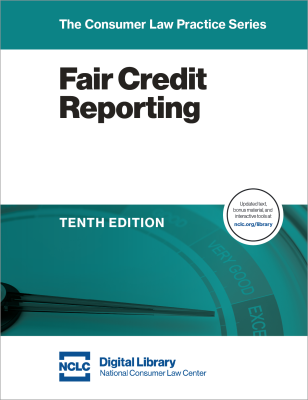This summer dramatic nationwide changes go into effect in the reporting of tax liens, civil judgments, and medical debt by the Big Three nationwide consumer reporting agencies (CRAs)— Equifax, Experian and TransUnion. Going forward, consumer reports from the Big Three (commonly referred to as credit reports) should hopefully experience improved accuracy and higher credit scores for millions of consumers.
July 1, 2017 Changes to Reporting of Public Records Data
Effective July 1, 2017, changes should significantly reduce the amount of public records data in credit reports. The nationwide CRAs are no longer reporting in consumers’ credit reports up to 50% of tax liens and almost all civil judgments. These reductions are a result of the use of stricter criteria to match public records to a particular consumer’s credit file. As announced by the Consumer Data Industry Association, the criteria will require either a Social Security Number or date of birth in order to match a record— data which most civil judgments and many tax liens do not include. Because the CRAs will not be able to match the public record data to a consumer’s file, about 50% of tax liens and most civil judgment will not be included in the consumer’s file. The stricter matching criteria is the result of a settlement between the nationwide CRAs and the attorneys general in 31 states and a separate settlement with the New York Attorney General , as well as supervision by the Consumer Financial Protection Bureau. About 6 or 7% of scoreable credit reports (translating to an estimated 11 or 12 million consumers) will be affected according to FICO, but the improvement will be relatively limited. About 75% of affected consumers will experience a credit score increase of less than 20 points. For more on matching and other errors in the collection of public record information, see NCLC’s Fair Credit Reporting § 4.3.2.5. For Fair Credit Reporting Act violations as to the reasonableness for CRA procedures regarding public record information, see Id. § 4.4.6.5.
September 15, 2017 Changes to Reporting of Medical Debt
Effective September 15, 2017, the nationwide CRAs will change the way they report medical debt in two important ways, as a result of the settlement between the nationwide CRAs and the state attorneys general. These two changes will have widespread impact since a CFPB study has found medical debt comprise over half of debt collection items on credit reports. First, the CRAs will not report medical debt collection items when the date of delinquency is less than 180 days prior to the date that the item is furnished to the CRAs. For more on determining the date of delinquency, see id. § 5.2.3.2. This six month period during which delinquent medical debt will not be reported is highly significant, as it allows a period of time to resolve insurance claims or appeals, billing disputes between providers and insurers, or other issues that might legitimately delay payment of a medical bill. Oftentimes, medical bills are needlessly sent to debt collectors during such delays, but eventually paid off when there is a resolution of disputes or claims. Particularly unfair are situations where the insurer later determines its responsibility to pay a medical bill. Even though the consumer had no responsibility for the debt, the initial reporting of the debt as in collection will harm a consumer’s credit score. The second important new change regarding the reporting of medical debt responds to this last problem. The nationwide CRAs will remove or suppress medical debt collection items from a consumer’s report if the debt is later paid by insurance. Both these changes are significant. While the Fair Credit Reporting Act provides protections against the reporting of a consumer’s medical information (see id. at § 5.4), it allows reporting of medical debts and has no explicit provisions for insurance issues.
Private Enforceability
The private enforceability of these changes regarding public records and medical debt is complicated at best. The settlement between the state attorneys general and the nationwide CRAs specifically provides at Paragraph VII:
Nothing contained in this Settlement shall be construed as an admission or concession of liability and/or fact by the CRAs, or create any third-party beneficiary rights or give rise to or support any right of action in favor of any consumer or group of consumers, or confer upon any person other than the parties hereto any rights or remedies. By entering into this Settlement, the CRAs do not intend to create any legal or voluntary standard of care and expressly deny that any practices, policies, or procedures inconsistent with those set forth in this Settlement violate any applicable legal standard.
Nonetheless, if a consumer spots on her credit report a medical debt that is less than 180 days old or a civil judgment that does not belong there, she should send a dispute to the applicable nationwide CRA. Advice on sending a dispute is available at id. § 4.5.2.4. If a dispute does not result in the deletion of the item, the consumer may want to send a complaint to the CFPB or her Attorney General if she is a New York resident or a resident of one of the 31 states that signed the multistate agreement.


